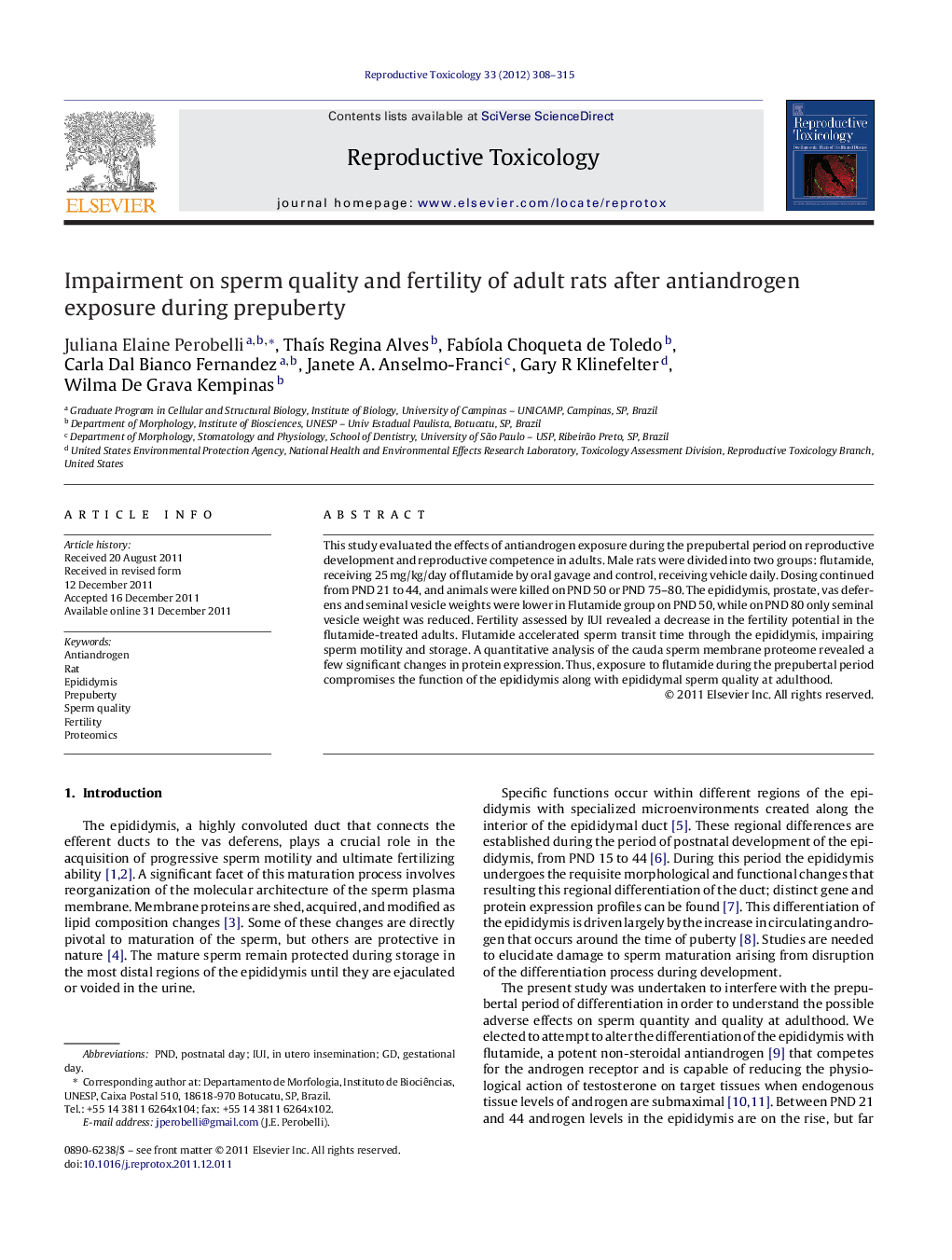| Article ID | Journal | Published Year | Pages | File Type |
|---|---|---|---|---|
| 2594169 | Reproductive Toxicology | 2012 | 8 Pages |
This study evaluated the effects of antiandrogen exposure during the prepubertal period on reproductive development and reproductive competence in adults. Male rats were divided into two groups: flutamide, receiving 25 mg/kg/day of flutamide by oral gavage and control, receiving vehicle daily. Dosing continued from PND 21 to 44, and animals were killed on PND 50 or PND 75–80. The epididymis, prostate, vas deferens and seminal vesicle weights were lower in Flutamide group on PND 50, while on PND 80 only seminal vesicle weight was reduced. Fertility assessed by IUI revealed a decrease in the fertility potential in the flutamide-treated adults. Flutamide accelerated sperm transit time through the epididymis, impairing sperm motility and storage. A quantitative analysis of the cauda sperm membrane proteome revealed a few significant changes in protein expression. Thus, exposure to flutamide during the prepubertal period compromises the function of the epididymis along with epididymal sperm quality at adulthood.
► Chemical stressors may compromise male reproductive development and function. ► Androgen deprivation during prepuberty impair reproductive competence at adulthood. ► Significant alterations in both the quantity and quality of sperm were observed. ► Observed effects appear to be related to the altered development of the epididymis.
